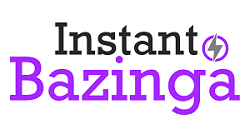There is a discussion amongst physicians about whether people require a pulse oximeter using Nellcor pulse oximeter sensor in their clinical supply sets at home. In typical times, unless a person has a real lung condition, there is no demand for them to utilize pulse oximetry monitoring. However, these aren’t typical times. The Lung Organization discourages buying pulse oximeters needlessly, as well as recommends people focus their recognition on various other COVID-19 symptoms. Nonetheless, in a recent post, an emergency physician stated if resources were directed toward the earlier discovery of quiet hypoxia, doctors can do more to maintain those individuals off ventilators.
There are added variables to consider. One is that understanding of the infection is rapidly altering, which implies suggestions can move, as it did when the Centers for Disease Control altered its face mask suggestion in April to one that urges individuals to begin putting on cloth masks in public. The experts are functioning very quickly with minimal pre-existing data. They are extrapolating a great deal based on previous coronavirus infections, like serious acute respiratory disorder, or SARS, as well as Middle East Respiratory Syndrome, or MERS.
At this point, the advantages of pulse oximetry tracking are most clear amongst patients that have COVID-19 symptoms such as coughing, high temperature, as well as lack of breathing. If you are symptomatic that is a reasonable time to examine your oxygen. That is something experts have been attempting to do from an outpatient point of view. Many doctors have COVID-19 clients over whom they are keeping an eye on in your home, as well as one of the determining elements for bringing them into the healthcare facility is their oxygen level. But for people who are young, as well as healthy and balanced, and have no COVID-19 signs, it is necessary to acquire a pulse oximeter.




